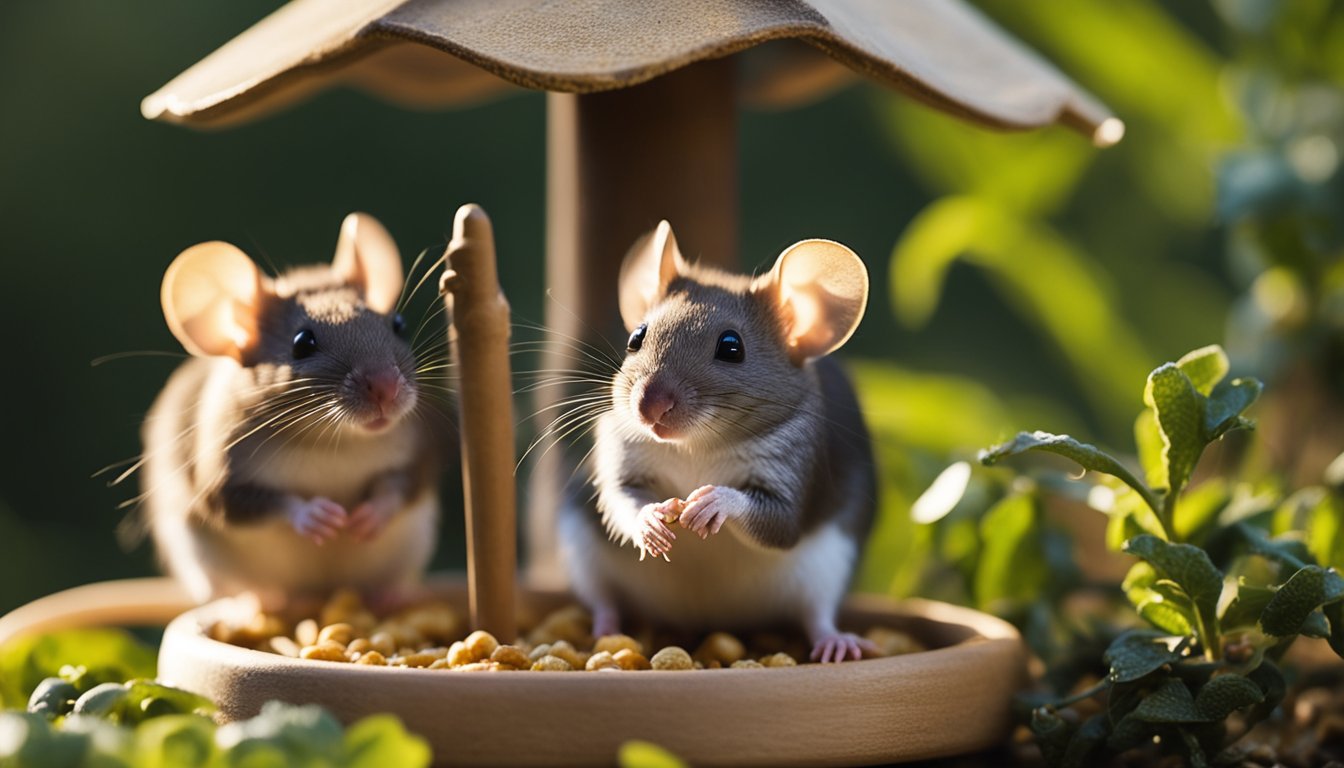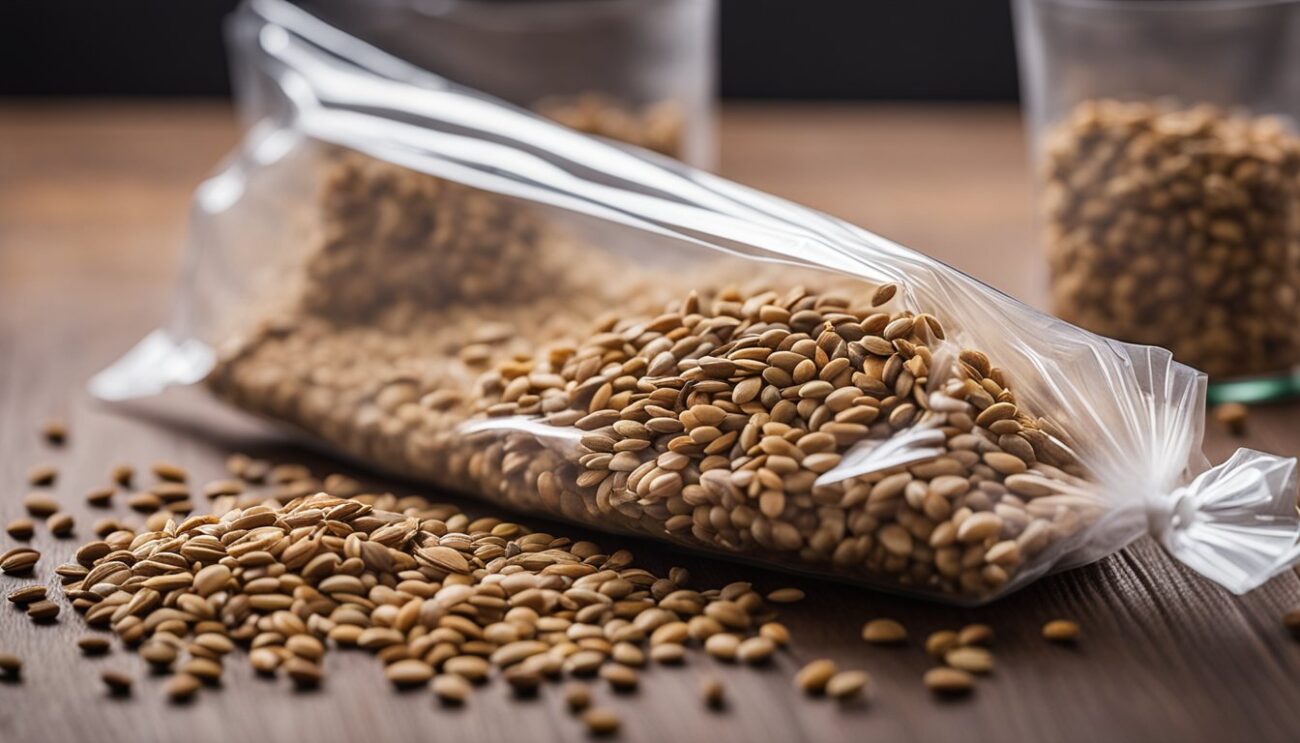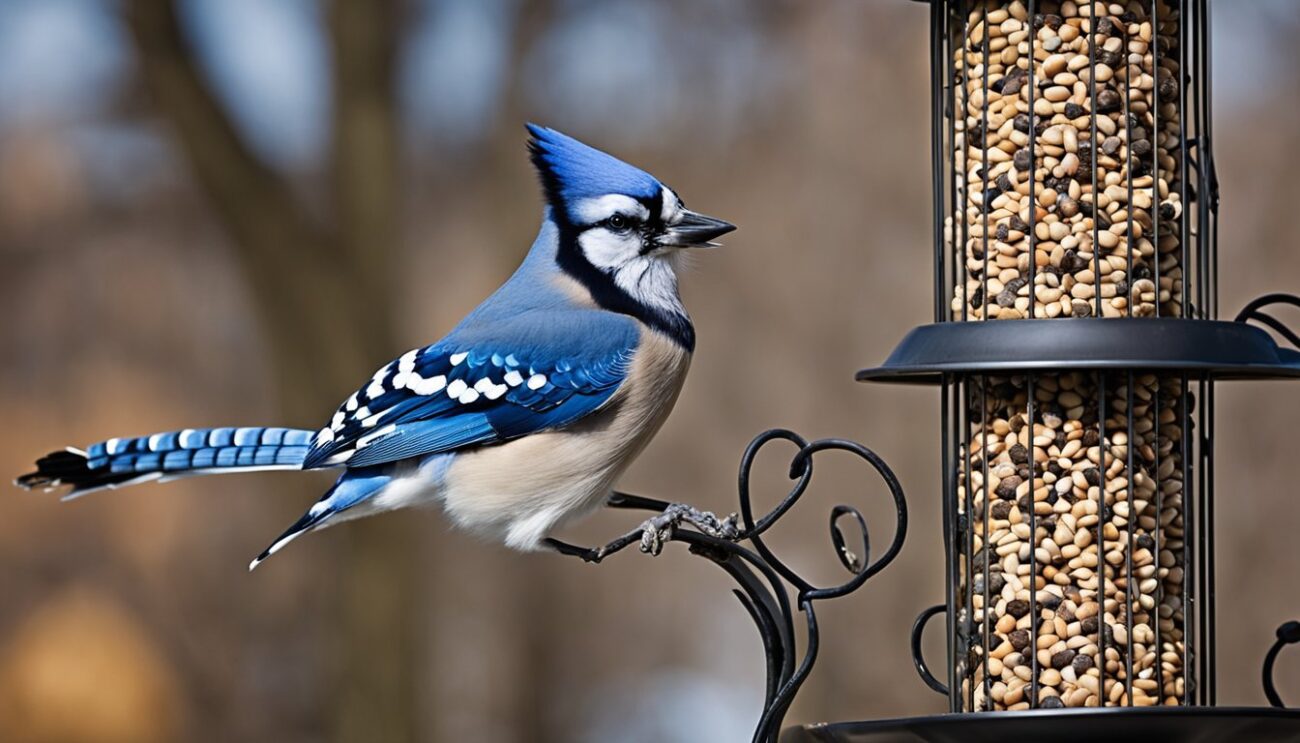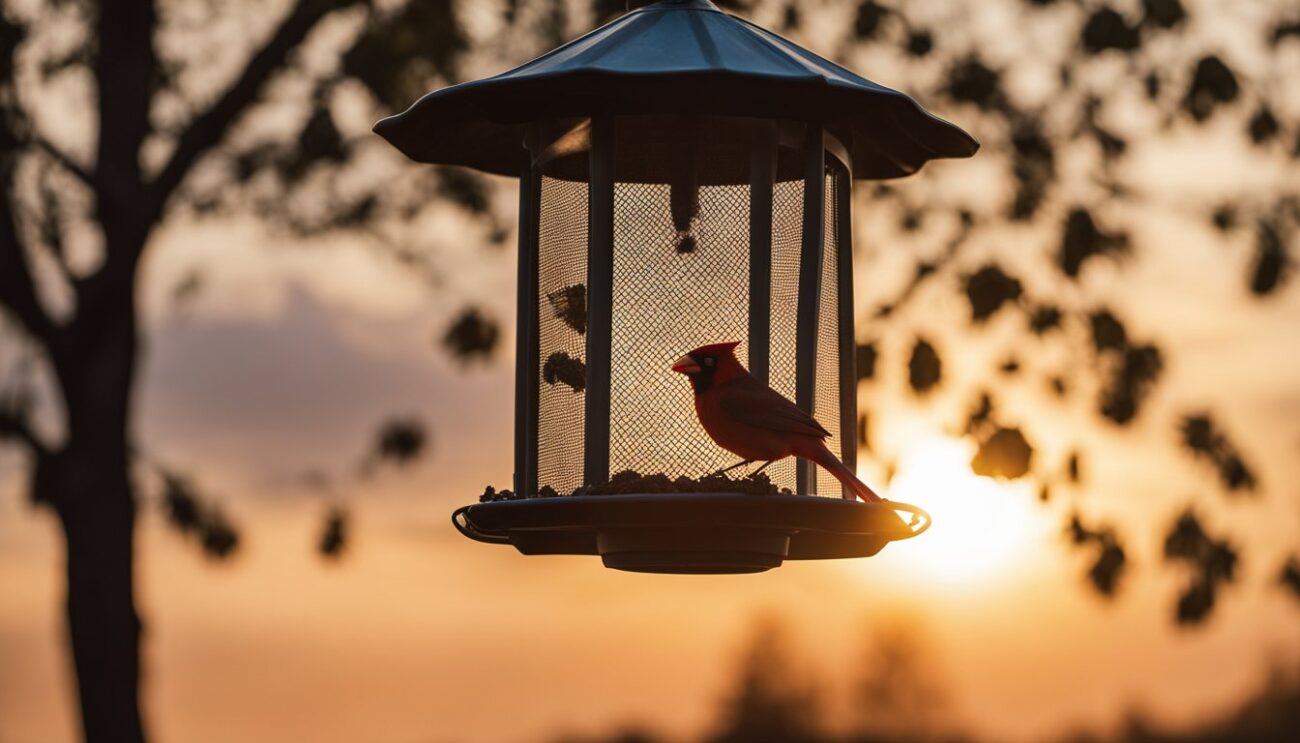Are you tired of dealing with messy bird seed spills and pesky pests? Storing bird seed the right way can make feeding your feathered friends a breeze. Here’s some fresh tips to help you keep your bird seed fresh and critter-free.

Proper storage keeps bird seed dry, pest-free, and easy to access when you need it. With a few simple tricks, you can say goodbye to clumpy seed and unwanted visitors. Your backyard birds will thank you for the clean, tasty treats.
Ready to up your bird feeding game? Let’s explore some clever ideas for storing bird seed that will save you time and hassle. You’ll be amazed at how easy it can be to keep your feathered visitors happy and well-fed all year round.
Understanding the Basics of Bird Seed Storage

Keeping bird seed fresh and safe is key to happy, healthy birds. Good storage helps the seeds stay tasty and full of nutrients.
The Importance of Storing Bird Seed Properly
Proper bird seed storage keeps your feathered friends safe and well-fed. When you store seeds right, they stay fresh longer. This means the birds get more of the good stuff they need to thrive.
Bad storage can lead to moldy or spoiled seeds. These can make birds sick. Pests like mice might also get into poorly stored seed. This can spread germs to the birds.
Good storage saves you money too. When seeds last longer, you don’t need to buy new ones as often. It’s a win for both you and the birds!
Types of Seeds and Their Specific Storage Needs
Different seeds need different care. Here’s a quick guide:
- Sunflower seeds: Keep in a cool, dry place. Use within 2-3 months.
- Nyjer seeds: Store in an airtight container. They go bad fast in heat or moisture.
- Millet: Likes it cool and dry. Can last up to 6 months if stored well.
- Safflower seeds: Keep away from heat. Use within 3-4 months.
For all seeds, pick a dark spot away from direct sun. Use containers that keep air and water out. Metal or thick plastic works best.
Check your seeds often. Look for signs of mold or pests. Throw out any that smell odd or look clumpy. Fresh seeds mean happy birds in your yard!
Choosing the Right Containers for Bird Seed

Picking good containers keeps your bird seed fresh and safe from pests. The right storage option makes feeding your feathered friends easier and more fun.
Airtight Containers to Preserve Freshness
Airtight containers are key for keeping bird seed fresh. They stop moisture and bugs from getting in. Look for containers with tight-fitting lids that seal well.
Some good options are: • Large plastic tubs with snap-on lids • Metal canisters with rubber gaskets • Glass jars with screw-on tops
Check that the container closes tightly. You can test it by giving it a gentle shake. If you hear seeds moving, it’s not airtight.
Plastic vs. Metal Containers
Both plastic and metal work well for storing bird seed. Each has pros and cons.
Plastic containers are: • Lightweight and easy to move • See-through so you can check seed levels • Often cheaper
Metal containers are: • Very tough and long-lasting • Better at keeping out pests • Often more stylish
Your choice depends on your needs. If you move your seed a lot, plastic might be best. For long-term storage, metal could be better.
Sizing Considerations for Storage
Pick a container size that fits your needs. Think about how much seed you use and how often you buy it.
Small containers like coffee cans work well if you: • Have limited space • Don’t feed many birds • Buy seed often
Larger bins are good if you: • Feed lots of birds • Buy seed in bulk • Have room to store big containers
Remember to leave some space at the top of your container. This makes it easier to scoop out the seed.
Maintaining Freshness Over Time
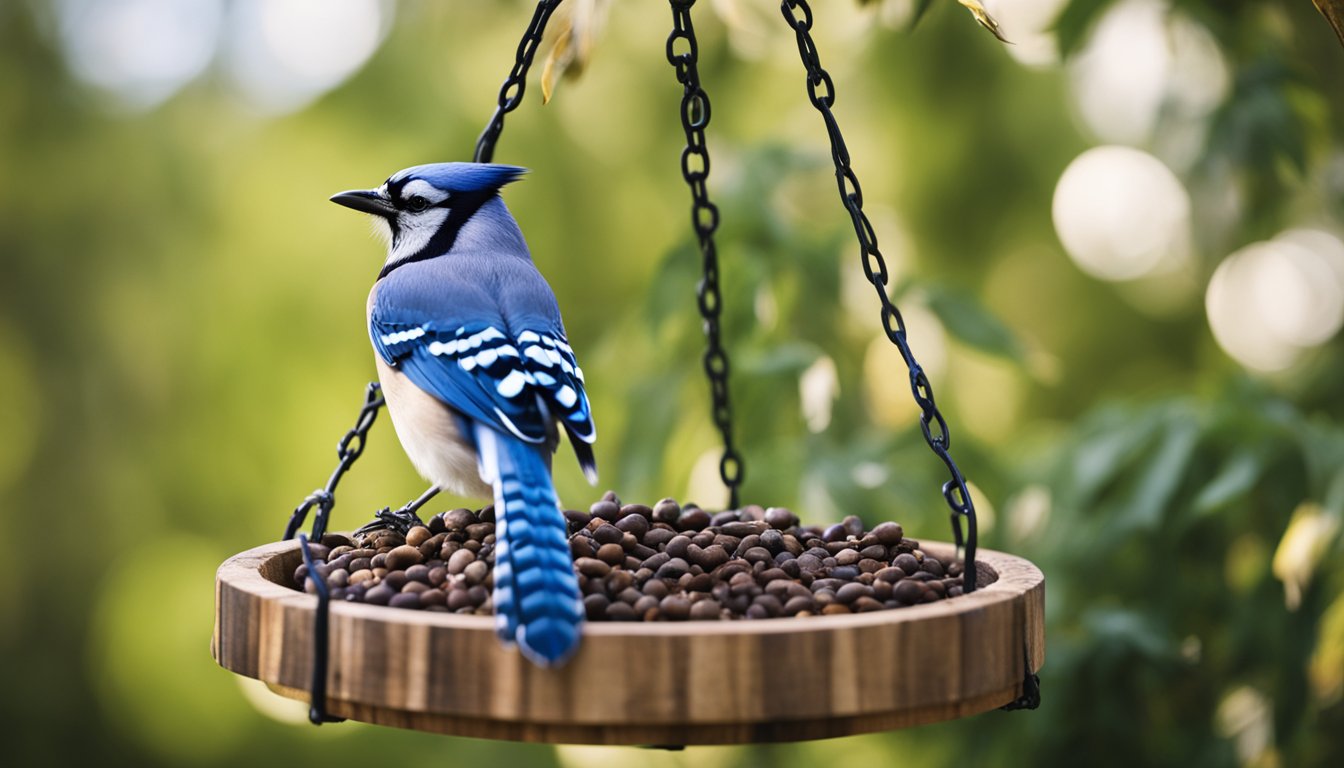
Keeping bird seed fresh is key to attracting feathered friends to your yard. Proper storage and rotation help prevent spoilage and ensure your birds get the best nutrition.
How to Keep Bird Seed Dry and Fresh
Store your bird seed in a cool, dry place away from direct sunlight. Airtight containers are your best friends for seed storage. They keep moisture out and freshness in.
Choose plastic or metal bins with tight-fitting lids. Make sure the seals are in good shape. Check for any cracks or gaps that could let dampness creep in.
Add a small packet of silica gel to your storage container. This helps absorb extra moisture. You can find these packets in many products or buy them separately.
Keep seed off the ground to avoid pests. Shelves or pallets work great for this. A garage or shed is often ideal for seed storage.
Rotating Stock: Old Seed Versus New Seed
First in, first out is a great way to rotate your bird seed. Use up older seed before opening new bags. This keeps your supply fresh.
Label containers with purchase dates. It helps you track how long seed has been stored. Most seed stays good for about 6 months if stored right.
Check old seed for signs of spoilage before using. Look for mold, bugs, or odd smells. If you spot these, it’s time to toss the seed.
Mix a bit of old seed with new seed when filling feeders. This uses up older stock while still giving birds fresh food. It’s a win-win!
Take a little bit of time each month to organize your seed. Move older bags to the front, newer ones to the back. Your birds will thank you with their cheerful visits!
Setting Up Your Seed Storage Area

A good seed storage area keeps your bird food fresh and easy to access. It protects seeds from pests and moisture while letting you quickly grab what you need.
Finding a Dry and Cool Location
Look for a spot in your home that stays cool and dry year-round. A utility room or closet often works well. Avoid damp basements or hot attics. Your storage space should be away from direct sunlight and heat sources.
Check that the area has good air flow to prevent mold. You might add a small fan if needed. Make sure the floor is clean and dry. Consider putting down a moisture barrier if you’re worried about dampness.
Organizing for Easy Access to Different Seed Types
Set up shelves or bins to keep seeds off the floor. Group similar seeds together. Put heavy bags on lower shelves. Use clear containers so you can see what’s inside.
Label everything clearly with the seed type and date bought. This helps you use older seeds first. Get containers in various sizes to match how much of each seed you use.
Try using airtight plastic bins to keep seeds fresh longer. Stack them neatly to save space. Keep scoops handy for easy measuring. A small table or cart can give you a spot to fill feeders.
Keeping Pests at Bay

Storing bird seed can be tricky. Pests and moisture are big problems. You need good ways to keep your seed safe and dry.
Rodents, Insects, and Moisture: Storage Challenges
Mice and rats love bird seed. They can chew through bags and containers. You might see rodent droppings in your seed. This is not good for birds. Insects like weevils and moths can also get into seed. They lay eggs and make a mess.
Moisture is another big issue. Wet seed can grow mold. This is bad for birds to eat. Damp seed can also attract more pests. You need to keep your seed dry and bug-free.
Secure Sealing Methods for Pest Prevention
Use containers with watertight lids. This keeps pests and moisture out. Metal or thick plastic bins work well. Make sure the lid fits tightly. You can add bungee cords for extra security.
Check your containers often. Look for holes or cracks. Clean them out if you see dead insects or seed dust. This helps stop new pests from moving in.
Keep seed off the ground. Use shelves or pallets. This makes it harder for mice to get in. You can also use bay leaves or mint to keep bugs away. These smells bother pests but won’t hurt birds.
Special Considerations for Unusual Storage Situations

Bird seed storage can present unique challenges in certain situations. Let’s look at some smart ways to handle seasonal changes and bulk purchases.
Adjusting for Seasonal Changes and Activity Levels
During periods of slow bird activity, you might not use as much seed. Keep your supply fresh by storing smaller amounts in airtight containers. Put these in your garden shed or garage where it’s cool and dry.
For longer storage, consider vacuum-sealing portions of seed. This keeps out moisture and pests. Label each package with the date so you can use the oldest first.
In busy seasons, rotate your stock more often. Check feeders daily and refill as needed. Keep extra seed handy in easy-to-pour containers near your feeding stations.
Storing Large Quantities: Frugality Versus Freshness
Buying bird seed in bulk can save you money on seed and freight costs. But it’s important to balance savings with keeping the seed fresh.
For large amounts:
- Use food-grade plastic bins with tight-fitting lids
- Add silica gel packets to absorb moisture
- Store in a cool, dry place away from direct sunlight
Consider splitting bulk purchases with friends or neighbors. This way, you all benefit from lower prices without risking seed spoilage.
Check your stored seed regularly for signs of mold or pests. If you notice any issues, it’s best to replace the affected seed right away.
Practical Tips for the Best Bird Seed Storage

Keeping bird seed fresh and safe is key for happy backyard birds. Here are some smart ways to store your seed and some DIY ideas to try.
Proven Strategies from Birding Enthusiasts
You’ll want to keep your bird seed dry and pest-free. A good option is to use airtight containers. Vittles Vaults are a popular choice among bird lovers. These tough plastic bins have tight seals to keep moisture out.
Metal trash cans with secure lids work well too. They protect seed from rodents and bugs. For smaller amounts, clean plastic buckets with snap-on lids are handy.
Always store your seed in a cool, dry spot. A garage or shed is often ideal. If you buy in bulk, use smaller containers for daily use. This helps keep the main supply fresh longer.
Innovative DIY Storage Solutions
Why not turn storage into a fun project? You can make your own seed bin from a large plastic tub. Cut a hole in the lid and add a pour spout for easy feeding.
An old chest freezer can become a rodent-proof seed vault. Just make sure it’s clean and dry inside. Add some bags of silica gel to soak up moisture.
For easy access, try a wall-mounted dispenser. Use PVC pipe to create a tube system. It’s a neat way to store seed and fill your feeders quickly.
Got empty coffee cans? They’re perfect for storing small batches of seed. Label each can for different types of seed. It’s a simple way to keep things organized.
Wrap-Up: Enjoying Your Feathered Friends with Confidence

Proper bird seed storage lets you feed backyard birds easily and safely. You’ll be ready to welcome feathered friends all year round with these handy tips.
Recap of Effective Bird Seed Storage
Keep your bird seed fresh in airtight containers. Plastic bins or metal cans work great. Store them in a cool, dry place away from pests.
Check your supplies often. Look for signs of mold or bugs. Toss any bad seed right away.
Clean your storage containers regularly. Wash them with soap and water, then dry completely. This keeps the seed safe and healthy for birds.
Buy only what you need. Fresh seed is best for your feathered pals. They’ll love coming to your clean feeders filled with yummy treats!
Final Encouragement and Best Wishes
You’re all set to be a great bird host! Your backyard birds will thrive with your care. Remember to fill feeders often and keep them clean.
Watch for new visitors to your yard. You might see different birds as seasons change. Keep a bird guide handy to spot new friends.
Enjoy the cheerful songs and colorful sights. Your efforts make a big difference for local wildlife. Have fun watching your feathered neighbors!
